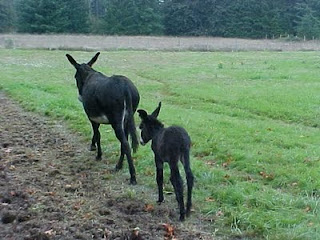
Alison - have your books been primarily of a certain genre, or for a certain age group? What draws you to write for that age group?
I like the immediacy and excitement of fiction - early chapter through YA - for young readers. However, in my long career, I have written picture books, nonfiction for educational markets and articles for adults. The variety continually improves my writing.
As a fellow horse and animal lover, I am always on the lookout for new horse books. Tell us about your life with animals, and how it colors your writing.
Having animals all my life has helped me understand and write about the emotional ties that people have with animals, yet keep scenes and situations realistic. I say the realistic part with tongue in cheek because my current early chapter book Bell's Star is written from the point of view of a horse, so realism was obviously stretched. (I've also been a cat detective and an assistance dog!)
How long does it generally take you to finish a novel? Do you find yourself working on more than one project at a time?
The amount of research required often dictates how long a book takes. The Racing to Freedom trilogy (Gabriel's Horses, Gabriel's Journey, and Gabriel's Triumph), which takes place during the Civil War, took two years to research. And even at the revision and last minute editing stages, I was fact-checking. So, yes, I sometimes work on other projects that are shorter and less research-intensive while writing longer novels. You are a fairly prolific author, Alison, and yet I know that you also have another career - as an adjunct college instructor teaching writing, and earlier as a special education teacher. How do you structure your day to accomplish so much?
You are a fairly prolific author, Alison, and yet I know that you also have another career - as an adjunct college instructor teaching writing, and earlier as a special education teacher. How do you structure your day to accomplish so much?
I didn't start publishing until I was teaching part time, which helps. I never could have taught full time, raised two kids, managed all the demands of publishing - research, writing, editing, marketing - and kept my sanity. I know some authors who do and I tip my pen to them! Teaching actually helps my writing and keeps me connected with the real world and real issues of literacy.
Any tips for fellow writers?
I just finished critiquing manuscripts for a SCBWI conference. Many of the pages/chapters showed a lack of understanding of not only what makes a good story, but what makes a good story for a middle grade reader, for instance. Make sure you read books for children at all levels and in all genres. Analyze dialogue, complexity of plot, chapter lengths. Then find a story to tell that excites you. Don't try and write the next Twilight unless you are crazy in love with teens and vampires. Write about your passion.
I know that you are interested in promoting literacy in children. Any ideas on how we can get them away from the television/computer/electronic games syndrome and make readers out of them?
Every author and educator needs to read the book Readicide by Kelly Gallagher. He says it all.

Of all the books you've written, do you have a favorite one? And why?
School kids often ask this question, and my answer is "the book I am writing must always be my favorite, so that you, the reader, will be as excited about reading the book as I was writing it." Right now, my favorite book is Emma's River from Peachtree Publishers, which will be out in April 2010. I just finished editing it. It's a suspenseful tale of a plucky girl and her pony surviving a steamboat explosion in 1854 on the Missouri River.
Any new books or projects you'd like to share with us?
I'm thrilled that the sequel to Shadow Horse is coming out in May 2010. Shadow Horse was published in 1999 and was nominated for an Edgar Award in 2000. I always dreamed of a sequel. Ten years later it's finally happening!
To learn more about Alison and her books please visit her website at www.alisonhartbooks.com/
Win a copy of Alison's newest book - Bell's Star.
Book Giveaway!!
This fast-paced historical novel, told in the voice of a young Morgan horse, would be a great gift for any young horse lovers on your Christmas list. To enter, leave a comment on this post, or send me an email (check my profile page) by November 30, 2009. I will randomly draw the winner on December 1st. Okay?
Alison, thank you so much for stopping by and sharing your thoughts with us!!



 I got my agent online. I found her on a site that lists agents accepting new clients
I got my agent online. I found her on a site that lists agents accepting new clients 

 And since writers are always on the look-out for new words (especially verbs) who would have known several years ago that we'd all be using "googled, friended, blogged, and facebooked" as verbs? You know, as in, "hey, I'll facebook you?"
And since writers are always on the look-out for new words (especially verbs) who would have known several years ago that we'd all be using "googled, friended, blogged, and facebooked" as verbs? You know, as in, "hey, I'll facebook you?"

